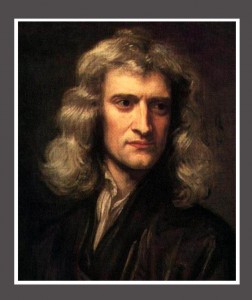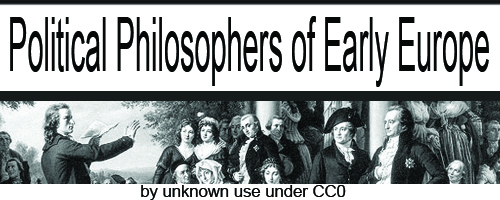Scientific Revolution
by Taylor Sitorius

by Rudolphine Tables used under CC0
The Scientific Revolution began at the start of the 15th century and eventually evolved into the European Enlightenment [1]. This movement embodied major changes in the nature of intellectual investigation. These changes altered the ways in which people thought about and explored the natural universe [1]. The scientific revolution of early Europe was not only the precursor to the Enlightenment but also to the methods scientific inquiry we still utilize today. It introduced developments in mathematics, physics, astronomy, biology, philosophy, and chemistry that changed how nature and human society were viewed [1]. It introduced the scientific method as a rational, repeatable way to exploring science, began astronomical investigations that eventually landed a man on the moon, and developed laws and theories that govern the fundamental nature of our universe [1]. The Scientific Revolution was truly a revolutionary period.
Before the Scientific Revolution a medieval mindset governed popular European thought. This mindset encouraged blind following of religious doctrine and discouraged experimental intellect. The Renaissance, whose end occurred just as the Scientific Revolution began, helped open up this Medieval mindset by launching both the process of secularizing knowledge and rejection of the church, giving space for thoughts of the Scientific Revolution to prosper [1].

by Aldo Cavini Benedetti used under CC BY-NC-SA
The Royal Society facilitated much of the intellectual development that occurred during the Scientific Revolution. The Royal Society was an academic institution that provided philosophers with a focused forum for scientific and intellectual debate [1]. The development of this type of institution, one that encouraged prolonged secular education, marked a political and social acceptance of science in everyday society [1]. One member of the Royal Society, Sir Isaac Newton, developed the three laws of motion that govern modern physics [1].

by Skara Kommun used under CC BY-SA
The Scientific Revolution didn’t open up doors for science alone. The movement’s appreciation for progressive thought also gave political philosophers such as Immanuel Kant the opportunity to express his own contemporary theories on society during the Enlightenment [2]. Kant’s contributions to new ways of thinking introduced many revolutionary concepts, including the concept that there is no true purely objective knowledge, that knowledge is filtered through personal experience [2]. The scientific revolution was revolutionary because it opened doors for Enlightenment political phosphors like Kant’s whose theories continue to influence today’s revolutionary thinkers. The period started drastic changes in the way people approached life and thought about their world. These changes continued into the Enlightenment and still influence thinkers today. These thoughts were also revolutionary because they introduced new ideas about what was right and wrong, religion was no longer the only moral compass. This lead to another revolutionary signifier, conflicting feelings about the changing times. But, this revolution responded to hopelessness from the European people, making changes in thinking that are still relevant today and solidifying its importance in world history.
[1] Scientific revolution, The. (2005). In Chambers dictionary of world history.
[2] Immanuel Kant. (2003). In J. R. Farr (Ed.), World Eras (Vol. 9, pp. 313-315). Detroit: Gale.
